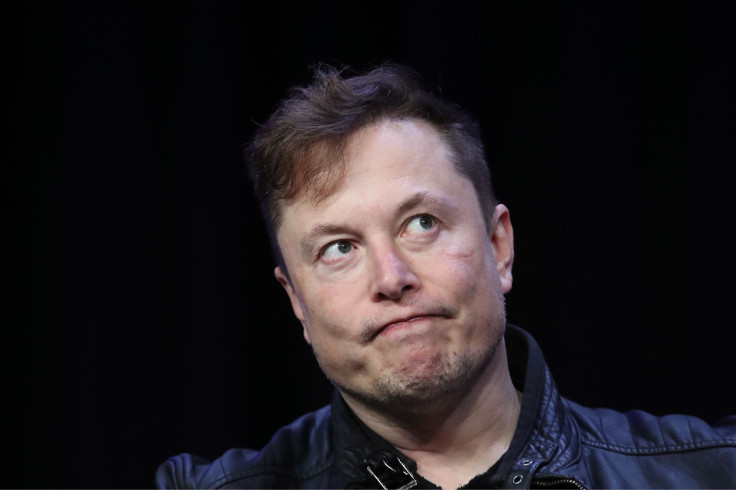
Billionaire Elon Musk has been ramping up his support of Republican candidate Donald Trump as the 2024 election cycle has progressed. And he's been doing it in more ways than one. Besides showing up at a recent rally in Pennsylvania, the Tesla founder has been pouring millions of dollars into key House races to favor the GOP. In early October alone it was revealed that his political action committee, formally known as America PAC, poured $8.2 million into 18 different races across 11 states.
But perhaps most influential of all has been Musk's activity on X, the social media platform formerly known as Twitter, which he owns. Musk's account, which has over 200 million followers, has become fertile ground for conservative conspiracy theories, especially, as a sprawling analysis by Bloomberg revealed on Thursday, those that have to do with the alleged link between immigration and voter fraud.
Bloomberg analyzed more than 53,000 posts sent from Musk's account on X, formerly known as Twitter, between December 2011 and October 2024 to determine which topics he remarked on most, and tracked which of his posts received the most engagement.
During the first 10 years, for example, his posting habits were modest, posting roughly four times a day. That changed when he acquired the platform in October 2022, when he started tweeting more frequently, for the most part, about the platform itself, collecting nearly 4 million reposts in the month that followed. By mid-2023, news about Twitter, then X, had grown relatively stale and Musk posted more about miscellaneous topics.
But the real shift towards more politically-driven content came in 2024, as the U.S. presidential election cycle got under way. From January to March, Bloomberg found, Musk regularly claimed, without evidence, that Democrats were using undocumented immigrants to manipulate election outcomes.
Biden’s strategy is very simple:
— Elon Musk (@elonmusk) February 3, 2024
1. Get as many illegals in the country as possible.
2. Legalize them to create a permanent majority – a one-party state.
That is why they are encouraging so much illegal immigration. Simple, yet effective. pic.twitter.com/B9M5ypUOQB
A few other things you probably don’t know: illegals in America can get bank loans, mortgages, insurance, driver’s licenses, free healthcare (California & New York) and in-state college tuition.
— Elon Musk (@elonmusk) February 3, 2024
What’s the point of being a citizen if an illegal gets all the benefits, but doesn’t…
Though the volume of such posts dipped briefly until July, it surged again in the months leading up to the election. In all, during what's transpired of 2024, immigration and voter fraud has become Musk's most frequently posted and engaged with policy topic, garnering about 10 billion views in 10 months. Musk posted more than 1,300 times about the topic overall, with more than 330 posts in the past 2 months alone.
As I was saying, they’re importing voters https://t.co/zokSXYn78x
— Elon Musk (@elonmusk) July 29, 2024
Musk's claims of fraud align closely with former President Trump's ongoing misinformation around election fraud, which Trump himself, along with several prominent conservative figures, have amplified since losing in 2020.
In fact, this year the cause has mobilized a network of Republicans to increase pressure on local election officials to implement measures they believe will prevent noncitizen voting , including pushing for voter roll purges, filing lawsuits, organizing on-the-ground monitoring of polling places and spreading information online.
However, there is no indication that noncitizens are voting in large numbers, as study after study have shown. A recent analysis published by the Cato Institute found that the number of votes cast by noncitizens discovered through state audits in 2016 ranged from three in Nevada, out of over a million votes cast, to 41 in North Carolina, where nearly five million votes were cast.
The Bloomberg study's authors, however, warn that Musk's role as a high-profile influencer allows these unsubstantiated claims to reach an even wider audience, besides the fact that his posts generally do not receive notes from X's fact-checking system, even if demonstrably false:
"As the most-followed account on X, Musk is the platform's single most important influencer. In early 2023, Musk instructed his engineers to incorporate a special system that pushes his posts into people's feeds, according to tech news outlet Platformer. He is still the most widely read person on the site today."
The Bloomberg study is hardly alone in its conclusions. On Monday, CBS News conducted another research piece on Musk's social media usage, looking into more than 48,000 of the billionaire's posts over the past four years and providing a similar conclusion on the topic of misinformation:
"The CBS News Confirmed team fact-checked Musk's posts on election security and found that 55% contain misleading or false statements, or amplify posts that do. Further analysis of these posts showed that 40 of the accounts Musk replied to or reposted were accounts researchers have identified as promoters of voter fraud claims."
© 2024 Latin Times. All rights reserved. Do not reproduce without permission.











